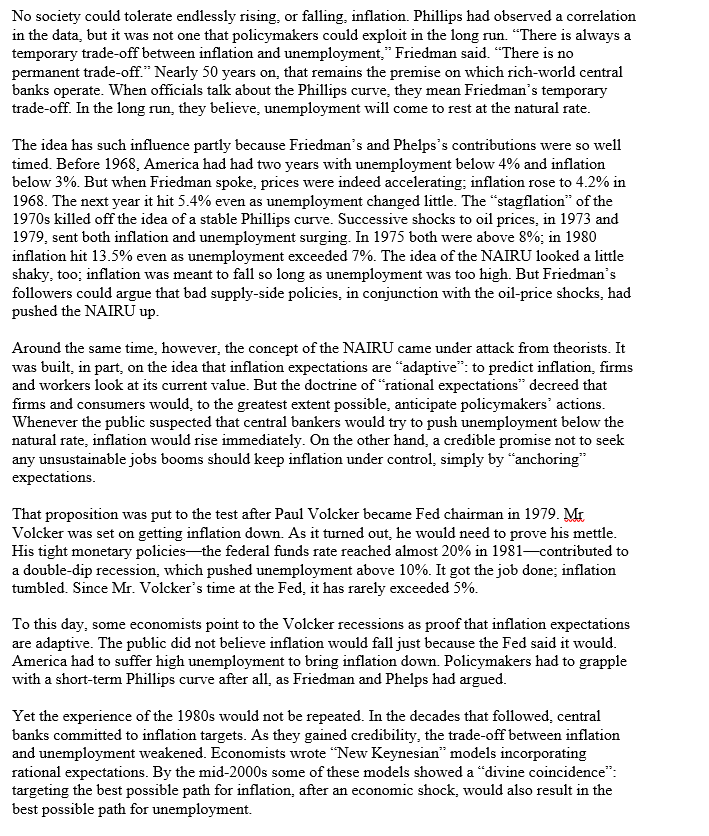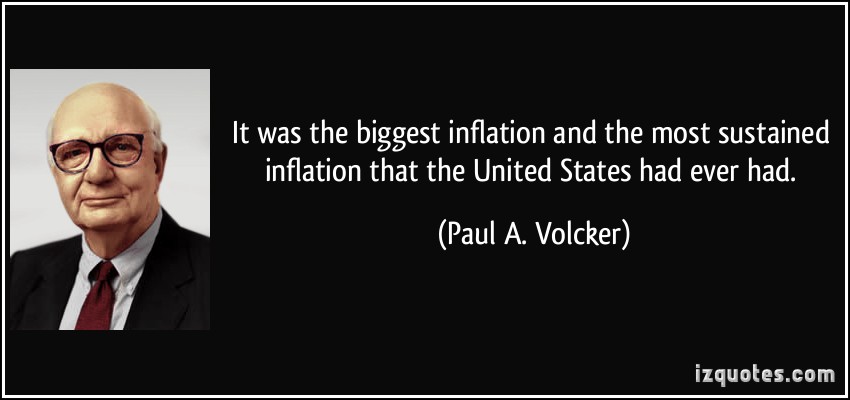
"Without price stability, the economy does not work for anyone," Powell said Friday. Powell's modern echo of this sentiment has been his repeated invocation that the burdens of high inflation fall hardest on those least able to bear them: the poor, the unemployed, the elderly. In an interview, Paul Volcker once said: "Inflation is thought of as a cruel, and maybe the cruelest, tax because it hits in a many-sectored way, in an unplanned way, and it hits the people on a fixed income hardest." "Given the risk that a premature easing in financial conditions could undermine the Fed's inflation fighting effort and credibility," Boussour added, "Fed Chair Powell leaned against the more dovish narrative and delivered a hawkish message that policymakers 'will keep at it until are confident the job is done.'" Williams, president and chief executive officer of the Federal Reserve Bank of New York, Lael Brainard, vice chair of the Board of Governors of the Federal Reserve, and Jerome Powell, chair of the Federal Reserve, walk in Teton National Park where financial leaders from around the world gathered for the Jackson Hole Economic Symposium outside Jackson, Wyoming, U.S., August 26, 2022. Economist Lydia Boussour wrote in a note on Friday. "In the run-up to Fed Chair Powell’s Jackson Hole Symposium speech, there was a growing sentiment among market participants that the Fed will soon make a dovish pivot as Chair Powell noted at the post-FOMC press conference that 'at some point' it would be appropriate to slow the pace of rate tightening," Oxford Economics' Lead U.S.

This as the Fed's own forecasts in June suggest rates will rise by another 100 basis points before the end of this year.Īnd it is this specific doubt Powell seems most eager to push back against. Through much of the summer we saw the stock market rally and bond yields decline as some investors placed bets the Powell Fed would fall short in one key facet of this historical parallel: "lengthy period."īy late July, markets were pricing in a cut in interest rates from the Fed as early as next year. Our aim is to avoid that outcome by acting with resolve now." "A lengthy period of very restrictive monetary policy was ultimately needed to stem the high inflation and start the process of getting inflation down to the low and stable levels that were the norm until the spring of last year. "The successful Volcker disinflation in the early 1980s followed multiple failed attempts to lower inflation over the previous 15 years," Powell said.

The unemployment rate peaked in 1982 during Paul Volcker's tenure as Fed chair.


 0 kommentar(er)
0 kommentar(er)
